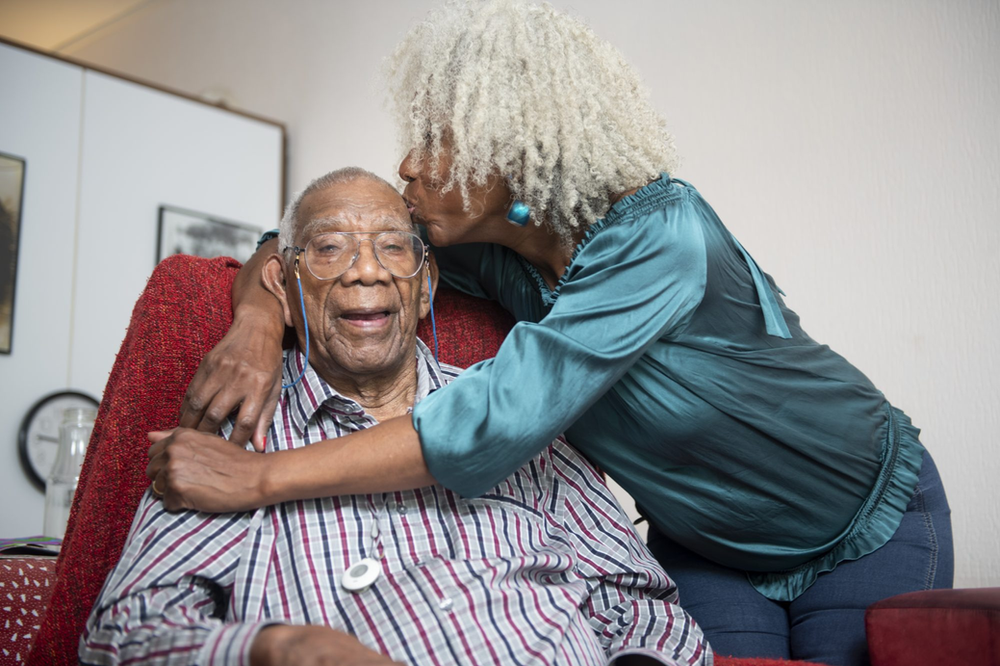What to look for and how to find services that can help
n
There are many resources and services available today to enable seniors to age in place. Thanks to advancements in digital health technology, seniors are increasingly living safely within the comfort of their homes as they continue to age. This article discusses how to determine if an aging relative needs assistance to remain at home. Contact Sena Health today to find out more about receiving customer-centric, hospital-level care in the comfort of your home!
nn
By Madison Yauger
nn
Many people found themselves separated from loved ones during the pandemic, and now that we’re reuniting with family and friends, it can be startling to see how much someone you care about has changed over the course of a year. If you’re noticing behavioral, cognitive, or physical changes in your aging loved ones, you’re not alone. A study from the National Institutes of Health (NIH) shows that social isolation may increase symptoms such as sleep deprivation, fatigue, and depression in elderly adults. Unfortunately, due to the circumstances surrounding all of us in 2020, many seniors were alone for extended periods of time, and behavioral changes were amplified as a result.
n

Becoming a caregiver for a parent or loved one is a noble but daunting task. There are times when you can’t be there to help them, and some issues require medical attention or a trained expert. As a caregiver, you will face all sorts of challenges, so it’s important to recognize your limitations and call in-home care professionals when the time comes. According to the National Institute on Aging (NIA), home health care includes in-home caregiver services, transportation services, companion services, nurses, service workers, and nursing and retirement homes.
nn
“I think [the signs of decline] really differ for every person, from what I’ve seen in my practice,” Jennifer Reckrey, MD, an associate professor of Geriatrics and Palliative Medicine at the Icahn School of Medicine at Mount Sinai, tells Health. The main thing to look for is a significant change: “Someone who’s been one way their whole life, concerned with their appearance, or always on top of birthdays, and then that starts to change,” Dr. Reckrey, whose research focuses on home-based primary care and the role caregivers have in the home, explains.
n

Warning Signs Your Parent May Need In-Home Senior Care
n
It can be difficult to determine something is wrong if you don’t see your senior regularly. The next time you’re with your loved one, pay close attention. Is there evidence of behavioral changes? What about cognitive or physical declines? Here are what those signs might look like according to the NIA.
nn
Behavioral Changes
nn
These signs may take the form of late payments, bounced checks, or stacks of unopened mail. You might also notice their home appears cluttered or dirty, or that they are keeping expired groceries. Perhaps they’ve lost interest in their favorite activities or have switched up their sleeping patterns. Behavioral changes could also include severe mood swings and increased agitation.
nn
Cognitive Declines
nn
If you’re worried that your loved one is experiencing cognitive decline, look out for loss of reasoning skills, general confusion, or uncertainty. They might show difficulty keeping track of time and miss appointments or forget to take medication. The most obvious signs tend to be excessive forgetfulness and memory loss. These could also signal a more serious decline, such as dementia or Alzheimer’s disease, according to the Centers for Disease Control (CDC).
nn
Physical Changes
nn
Upon first glance, there are several physical signs that can let you know your loved one is struggling. Weight loss and difficulty eating or drinking can show that something is amiss. Your parent may have trouble standing, sitting, walking, or moving around, indicating a deterioration in physical agility. If you notice bruising or injuries, they could’ve sustained them in a fall or an incident they’re too embarrassed to share with you. Another subtle but important warning sign is poor personal hygiene. This can include loss of grooming habits, wearing the same outfit over and over again, and donning disheveled or dirty clothes.
n

Types of Home Care Services
nn
Different warning signs sometimes require different levels of care. Perhaps your loved one is mentally astute but needs help with physical tasks like housekeeping, meal prep, and transportation. Or they may need someone who can offer companionship when you’re not around. Here are a few examples of home care services you can find on sites like Care.com:
- n
- Household tasks (errands, housekeeping, and meal preparation)
- Personal care (bathing, dressing, and feeding)
- Companionship (sharing hobbies and conversation)
- Transportation (driving to appointments and other errands)
- Specialized care (memory care or use of special equipment)
- Mobility assistance (lift, transfers, physical activity, etc.)
n
n
n
n
n
n
The Conversation
n
“In my experience, people may be hesitant to have people come into their home to help,” says Dr. Reckrey. “They’ve already figured out a way to cope with their problems, whatever they may be, so it can be a difficult conversation.” However, it is still an important discussion to have because you don’t want to make any decisions about your loved one’s well-being without consulting them first. “Determine if there’s an opening, if there’s anything they think they might need help with. Start small, like offering them someone to help with laundry (as opposed to bathing or something more personal),” Dr. Reckrey suggests. “There can be a lot of fear that someone coming into the home will take away their independence, so be sure to explain that it will actually bring out more freedom for them,” such as being able to grocery shop for themselves again or be driven to events with friends.
nn
Dr. Reckrey also recommends framing in-home senior care as a way to help you, the other assumed caregiver. You might say, “I’m doing this for me. I need help with these things to make sure you’re OK because I can’t be there to help with these things.”
nn
“When in-home care works, it’s not only filling a gap, it’s creating a meaningful relationship, and I think it’s a positive thing,” says Dr. Reckrey. But, she adds, “What works for one family may not work for everyone. It’s a relationship, and you want everyone to be comfortable and communicate and work together. You may not find the right person the first time, but that doesn’t mean in-home senior care won’t work, it just means you need a better fit.”
n

How to Find the Right Caregiver
n
Once you’ve decided what type of care is right for your senior—talking to their doctor can help with that process—then you will need to find the right caregiver. If you go for the in-home senior care route, services like Care.com can match you with a caregiver to watch after your loved one. If a retirement home or nursing home is the next step, research establishments near you and ask for referrals from friends, family, and trusted medical experts in your community.
nn
Many of these care services give you flexibility when it comes to your budget, schedule, and the types of service you’ll need for your senior. You can provide additional information about your senior, such as hobbies, interests, and underlying conditions, as well as clearly state what qualities you’re looking for in a caregiver to create the best personality match.
nn
Care.com, in particular, offers a membership opportunity ($38.95/mo, with reductions for extended plans) where you’ll be matched with the top qualified caregivers in your area. With Care.com‘s service, it’s guaranteed that applicants undergo annual background checks. Moving into this next stage of life can be difficult for seniors, but a caregiver service can help make the transition a little easier.
nn
Link to original article posted July 9, 2021 | Health

